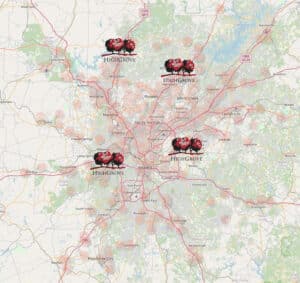 A commercial landscape is meant to look tidy, bold and breathtaking, serving practical purposes but also providing a visual outdoor feast for visiting eyes.
A commercial landscape is meant to look tidy, bold and breathtaking, serving practical purposes but also providing a visual outdoor feast for visiting eyes.
Trees blooming with summer’s finest flowers, a breeze carrying their scent. Neat, trim turfgrass standing like perfectly aligned little emerald soldiers—not a weed or blemish in sight. Professionally designed beds of shrubs, ornamental grasses and perennials add multidimensional interest, texture, light and color to the landscape.
And then there are the hardscapes that tie everything together—the artistically designed patio and paver path that wind their way around the building or that centrally located water feature that delights the eyes of visitors and gives employees a place to escape for lunch and listen to the trickling water. A smart irrigation system keeps all these plants adequately hydrated, while the perfect amount of lighting gives the landscape additional depth and drama as the sun slowly sets.
This is the above-ground picture of the perfect commercial landscape. What you can’t see are the soil, roots, utility lines, irrigation lines, electrical landscape-lighting wiring for lighting and more.
While working around these underground land mines, it’s important for landscape professionals to understand what they can do to ensure they aren’t harming anything on the property or putting their crews at risk of injury.
Know What’s Below!
 The work landscape professionals do on commercial properties can involve big equipment or equipment that works beneath the soil. It can also mean digging deeply with a tree spade to plant a large tree or to level the ground for the installation of a patio.
The work landscape professionals do on commercial properties can involve big equipment or equipment that works beneath the soil. It can also mean digging deeply with a tree spade to plant a large tree or to level the ground for the installation of a patio.
Anytime a professional landscape contractor is conducting work on your property that involves digging below ground, it’s important for us to call a Utilities Protection Center to locate all buried utility lines on the property so we can safely dig without damaging any utilities or other underground piping or wiring.
Do You Need A Permit With That?
While much landscape work doesn’t require special permits, some does.
Other work, such as landscape lighting or irrigation system installation that requires the use of a trencher to dig for the placement of electrical wiring or piping, requires us to know where other utility lines are beneath the ground so we can make sure to avoid them while we do our work—to keep us safe in our jobs but also to avoid damaging anything on the commercial property.
For larger work that would require a permit, it’s typically the contractor’s responsibility to obtain the proper permits for the work.
Better safe than sorry: A responsible landscape contractor will always call before they dig. This simple step is one of the most overlooked on commercial properties, but it’s extremely important to not only admire the landscape above ground, but to also understand what’s below ground so we can move confidently about our work beautifying Atlanta commercial properties.
HighGrove Won’t Let You Down
HighGrove Partners’ experienced professionals can answer your questions on permits or below-ground concerns. Call us at 678-298-0550 or use our simple contact form for a free consultation!




